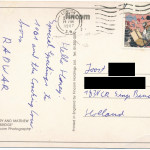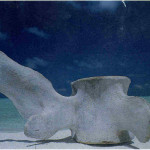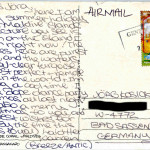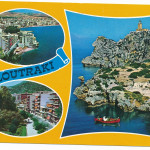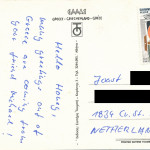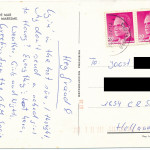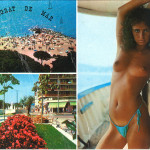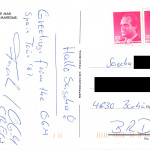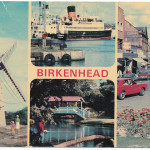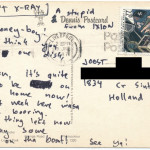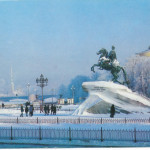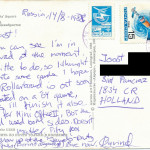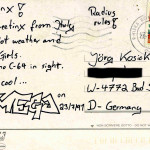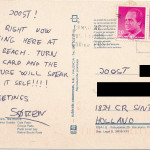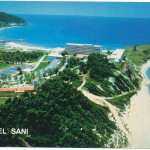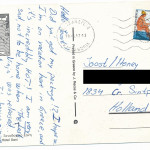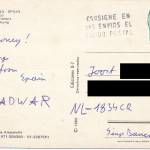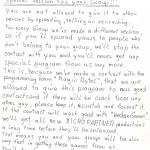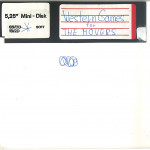Now that the summer holidays are beginning, here are some examples of a rather forgotten genre of swapletters – tourist postcards! 1980s’ sceners were mostly teenagers, so, besides chasing up originals to crack, doing fascinating things with computers, and travelling to the occasional copyparty, they also attended school, had arguments with their parents, and, of course, went on vacation. The fascinating samples provided by Honey, Skylab, and Lynx show that they did so with mixed feelings: One the one hand, they enjoyed the holidays, but on the one hand, they were anxious about missing out on latest scene news. So, even in such a fascinating place as Leningrad in 1988, one scener was more concerned with ongoing C64 game projects at home than with the perestroika mood around him. Another common trait was the fascination of teenage sceners with half-naked women – so keep in mind that some of the images are rather NSFW. But most importantly, these postcards testify to the strong sense of friendship within the scene: Despite the fierce competition, the protagonists found time to simply send regards to their contacts around the world, whereever they went.
This update includes following postcards:
• AVH/Radwar (Germany) to Honey/1001 (Netherlands), 19 April 1987, sent from London [metadata]
• Breeze/Antic (Australia) to Lynx/Hitmen (Germany), 26 December 1991, sent from the Maldives [metadata]
• Drago/The Movers (Germany) to Honey, ~1987, sent from Loutraki/Greece [metadata]
• Frankie/OGM (Germany) to Honey, 8 August 1987, sent from Barcelona [metadata]
• Frankie/OGM to Skylab/The Movers (Germany), August 1987, sent from Barcelona [metadata]
• Ixion/Triad (Sweden) to Honey, 19 June 1987, sent from Liverpool [metadata]
• Matcham/Network (Norway) to Honey, 14 August 1988, sent from Leningrad [metadata]
• Mega (?) to Lynx, 23 July 1991, sent from Riviera Romagnola/Italy [metadata]
• Sodan (Denmark) to Honey, 23 June 1987, sent from Ibiza [metadata]
• Strider/Fairlight (Sweden) to Honey, 19 June 1987, sent from Kassandria/Greece [metadata]
• unknown member of Radwar to Honey, 24 March 1988, sent from Dénia/Spain [metadata]


